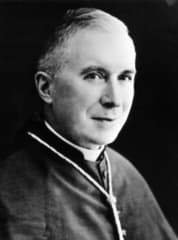アヴェ・マリア・インマクラータ!
愛する兄弟姉妹の皆様、
レネー神父様の霊的講話 「悔悛の秘蹟(続き)」(日本語訳)をご紹介いたします。
天主様の祝福が豊かにありますように!
トマス小野田圭志神父(聖ピオ十世会司祭)
親愛なる兄弟の皆さん、
ミサのとき、私たちは悔悛の秘蹟を一般的に勉強しました。今度は、さらに進んで、痛悔者の三つの行いである痛悔、告発(告白)、償いを勉強しましょう。
罪は天主と対立するもので、被造物が天主の至高の善を拒否するのであり、罪は霊魂あるいは精神の美しさを破壊します。それゆえに、すべての被造物を愛される天主は、罪を嫌わずにはおられません。天主は罪びとを愛されますが、罪を嫌われます。正確にいえば、天主は罪を嫌うことにおいて、罪びとを愛されるのです。同様に、医者は患者を大切にしますが病気を嫌います。もし医者が患者の病気を嫌い、その病気を治すためにできるあらゆることをするのでないなら、その医者は患者を本当に大切にしていることにはならないでしょう。もしも天主が罪びとの罪を嫌われないとするならば、天主は罪びとを本当に愛してはおられないことになってしまいます。
それゆえに、天主は変わりえませんから、罪びとが変わらない限り、罪びとが自分の罪を嫌い始めない限り、罪びとが天主の恩寵に立ち返り、再び天主をお喜ばせするのは不可能です。この罪を嫌うこと、これが痛悔です。痛悔とは、罪を強く嫌悪することです。痛悔(contrition)という言葉は、「すりつぶす、粉砕する、細かくなるまで打ちたたく」という意味のラテン語から来ています。
痛悔は内的で、超自然的で、全面的で、最高のものでなければならず、また、もうこれ以上罪を犯さないという固い決意を含んだものでなければなりません。痛悔が内的でなければならないというのは、痛悔が外的なしるしを持っていても、たとえ外的に涙を流したとしても、そこに心がなければ、頭が罪に愛着を持ち続けるならば、痛悔は十分ではないということです。痛悔はただ感傷的なものではなく―感覚的な感情は必要ないとさえ言うことができます―痛悔は頭が嫌悪することであって、つまり頭が罪の悪しき意志を打ち砕くという信念を持って拒否し、粉砕することです。
痛悔は超自然的でなければなりません。盗人が捕まって牢に入れられても、それはまことの痛悔のための動機としては十分ではありません。痛悔は、罪によってお怒りを招いてしまった天主への愛から出るものでなくてはならず、罪の本当の害悪を教える信仰から、また私たちの罪のゆえに十字架上で亡くなられた私たちの主イエズス・キリストに対して罪がどれほど傷を負わせたかを教える信仰から出るものでなくてはならないのです。地獄への恐れからという理由でも痛悔は有効です。その理由は、それが非常に超自然的な動機であるからです。地獄への恐れは痛悔を得る素晴らしい手段です。多くの霊魂たちは、地獄への本当の恐れを持っていたため、今は天国にいるのです。地獄へ行く最も確実な道は、地獄への恐れをすべて拒否することです。もし痛悔の動機が地獄への恐れのように自らの利益に基づいた動機であるならば、それは「不完全な痛悔」と呼ばれますが、良き告解をするのには十分です。この動機がもっと高められ、愛徳というまことの動機となり、天主への愛から、罪によって傷つけられた私たちの主イエズス・キリストへの愛から出るものとなるならば、それは「完全な痛悔」となるのです。
完全な痛悔をすれば直ちに罪の赦しを得ますが、それで告解に行くことを免除されるのではありません。全く逆です。天主の法への従順と、そのためにできるだけ早く告解に行くという意志があるのでないならば、まことの愛ではありません。ですから、遅れずに告解に行こうという意志がないならば、完全な痛悔はありえません。
痛悔は全面的でなければなりません。いくつかの罪のために痛悔の念をもっていても他の罪には愛着を持ち続けるのは、十分な痛悔ではありません。私通の罪を犯し、妊娠して、そのあと中絶をした一人の未婚の若い女性を例に挙げてみましょう。彼女は中絶という悪を非常に恐れているため、そんな重い罪を犯してしまったことを本当に悲しんでいます。しかし彼女は、私通という悪をも嫌悪しているのでなければ、まことの痛悔をしていません。その場合、彼女の悲しみが全面的なものではないことになるからです。同様に、盗人がある家に入って盗みをし、そのあと見つかったため家の持ち主を銃で撃った場合、盗人が殺人の罪を悲しんだとしても、自分の盗みも嫌悪するのでなければ、十分な痛悔ではありません。人は、自分がそれまで犯した大罪をすべて嫌悪しなければなりません。このことが非常に重要です。
痛悔は最高のものでなければなりません。この意味は、私たちは、罪を他のあらゆる悪を超えた最も大きな悪として、どんな痛みや死よりさえも、嫌悪しなければならないということです。私たちは罪を犯すよりも死ぬ方を選ぶ用意がなければなりません。例えば、初期の教会において迫害の最初の波が襲ってきたとき、信者の中には迫害に負けてキリストを否んだ人たちがいました。そのあと彼らは背教したことを非常に後悔したため、自らを正そうと裁判官のところに行って、自分たちはキリストを確かに信仰しており、自分たちの背教を嫌悪していると告げました。すると彼らは迫害者によって死刑にされ、自らの血で罪を洗い流し、教会によって殉教者としての栄誉を与えられました。彼らは自分の罪に対する本当に「最高の」悲しみを持っていたのです。聖アウグスティノは別の状況について語ります。誰か病気で死にそうになった人がいたとしましょう。異教徒の友人が迷信的なお守りや水薬、その他の迷信的な儀式を利用するよう勧めましたが、その死にかけた病人は罪を犯すよりもむしろ死ぬ方を選びます。彼のすることは正しいことです。そして、聖アウグスティノは、その人を隠れた殉教者に例えるのです。
私たちの痛悔は最も大きな痛悔であるべきですが、それだけでなく、最も強烈な痛悔でもあるべきであって、無感動や無関心の全くない、完全な痛悔であるべきです。なぜなら、第二法の書[申命記]にこう書かれているからです。「天主なる主を探し求め、心と魂を尽くして求めるなら、必ず主を見いだす」(第二法[申命記]4章29節)。また、エレミアはこう言います。「私を探し求めれば見いだす。心をあげて、私を探し求めるなら私は姿を現す―主のお告げ」(エレミア29章13節)。
このように、痛悔が真実のものであるためには、内的で、超自然的で、全面的で、最高のものでなければなりません。さらに、罪を嫌悪することの中にもう二度と罪を犯さないという固い決意が含まれていなければ、それは真実のものではありません。私たちの主イエズス・キリストは、姦淫の罪を犯した女に、はっきりとこのことを要求され、その女にこう言われました。「行け、これからはもう(二度と)罪を犯さぬように」(ヨハネ8章11節)。主はまた、ベトサイダの池で癒された男にこう言われました。「どうだ、あなたは治った。さらに悪いことが起こらぬように、もう二度と罪を犯すな」(ヨハネ5章14節)。
この固い決意はまた、全面的かつ効果のあるものでなければなりません。大罪のいくつかではなく、すべての大罪を避けるという意向を持たなければなりません。先ほど述べた例で言えば、盗みと殺人を犯した者は、殺人と盗みの両方を避けるという意向を持たなければならず、私通と中絶の罪を犯した若い女性は、中絶と私通の両方、そしてそのほかのあらゆる罪を避けるという意向を持たなければなりません。
この固い決意は、効果のあるものでなければなりません。すなわち、私たちに罪を避ける適切な手段を取らせるものでなければなりません。特に、罪の機会を避けなければなりません。私たちの主イエズス・キリストは、それについてはっきりと強く言われました。「その手があなたに罪を犯させるなら手を切り捨てよ、不具で命に入るのは両手があってゲヘナの不滅の火に入るよりもよい。そこではうじが失せず、その火は消えぬ。その足があなたに罪を犯させるならそれを切り捨てよ、片足で命に入るのは、両足があってゲヘナに投げ込まれるよりよい。そこではうじが失せず、その火は消えぬ。またもしその目があなたに罪を犯させるならそれを抜き取れ、片目で天主の国に入るのは、両眼があってゲヘナに投げ込まれるよりよい。そこではうじは失せず、その火は消えぬ」(マルコ9章43-47節)。
さて、これは、自分は再び罪に陥ることは決してないという確信を持っているべきだという意味ではありません。実際、人は再び罪に陥ることを恐れていても、罪を犯さないという固い決意を持つことができます。しかしながら、その固い決意があるという確かなしるしは、良い告解のあとに続く実際の努力、すなわち、かなりの期間にわたって成果を上げるような、罪を犯さないための実際の努力なのです。告解ののち罪の機会を避ける努力をまったくせず、すぐ昔の罪に戻ってしまうなら、その人が自分を直そうとする固い決意、罪を避けようとする固い決意を持っていたのかどうか疑問に思うべきです。その人の告解はまことの痛悔がないために無効だったかもしれず、そうならば汚聖の罪を犯していたかもしれないのです。ですから、告解ののち罪を避ける最大限の努力を実際に実行することが最も重要なのです。
この固い決意の中には、もし盗みをしたのなら盗んだ物を返還するという決意、あるいは自分が引き起こしたつまずきの償いや負わせた傷の償いをするという決意も含まれています。良い告解は、罪を犯したまま逃げることの許可ではなく、むしろまことの悔悛へと導くものですから、たとえ警察に捕まらなかったとしても進んで盗んだ物を返し、負わせた傷を償うのであって、人間の法律の執行者に捕まるまで待つのではないのです。
天主から赦しを得たいのなら、隣人に赦しを広げるべきです。「あなたたちが他人の過失を赦すなら、天の父もあなたたちを赦される」(マテオ6章14節)。
痛悔者の第二の行いは、自分の罪を告発(告白)することです。これが、厳密に言えば、罪の「告白」です。これは実際には告発なのです。人は「言い訳」をすべきではなく、むしろ自分自身を告発すべきです! これはただ自分の良心を心理学者に対して開くことではなく、法廷で犯罪者を告発することです。悔悛の秘蹟はまことに「悔悛の法廷」であり、実にあわれみの法廷ですが、本当の法廷なのです。
この告発は完全であるべきです。すなわち、自分のすべての大罪をその数とともに告発すべきです。大罪は大きな罪ですから、その数を数えることはそれほど難しくはありません。もし天主から離れて何年もたった人が天主に立ち返って、自分のすべての罪の数を数えられない場合は、その人は罪深い活動の期間と頻度を述べるべきです。例えば、「五年間の間に一週間に二回」のようにです。およその数を言うしかない場合には、不十分な数よりも常に少し多めの数で告発する方がいいでしょう。
また、ある罪に対して特別な邪悪さを加える状況があれば、それを告げる必要があります。例えば、隣人に対する暴力は悪いことですが、自分の家族の一員に対する暴力の場合はさらに悪くなります。この場合第四戒に反する罪が加わります。また、貞潔に反する罪の場合は状況によってさらに悪くなり得ます。例えば、暴力(レイプ)や近親相姦、自然に反する悪徳などです。また、カリスのような聖具を盗むことは、盗みの罪の上に汚聖の罪が加わります。しかしながら、罪深さに対して意味をもたない状況を告げる必要はありません。例えば、盗んだ物の色などです。告発は短くてポイントを突いたものであるべきであり、不必要にくどい言い方で罪を細かく述べるべきではありません。
告白において大罪を意識して隠せば、その秘蹟は無効になり、さらなる汚聖の罪となります! そのような悪しき告白をした人は、それとすべての過去の罪を悔いなければならず、もう一度それらすべてをその汚聖の罪とともに告白しなければなりません。
しかしながら、本当に忘れてしまった罪もあるでしょう。その場合は、そのような罪は他の罪とともに赦されるということを知っておかなければなりません。それらの罪は事実上、行った全面的な痛悔と告発の中に含まれていたのです。それらの罪が大罪であった場合は、次に告白に行く機会にそれらを告白すべきです。また、信仰を実践しないまま何年かののちに天主へと立ち戻る人たちの場合、彼らはその行為(例えば、慎みのなさ)の罪深さを知らずにいて、のちに霊的生活において成長して、その行為が罪であったと気付く、ということもあるかもしれません。彼らは安心していていいのです。そのような罪は、その罪深さを意識するようになるときに告発すべきものですが、以前の告白は良いものだったのです。なぜなら、罪をわざと隠そうとしたのではなく、むしろ本当に無知だったのですから。
言葉で自分自身を告発できない場合は―たとえば体の機能障害のために、または司祭の耳が聞こえないために、または言語の壁がある場合―、手話や、紙に書かれてある罪を指で指し示したりするといったしるしを用いて自分自身の罪を告発すれば十分です。もし病気で病院にいて、しゃべることができないものの聞くことができるならば、その人は司祭の質問に対して司祭の手を押すことによって答えることができます。
告発を完全にするためには、良心の糾明によって良い告解を準備するのが非常に有益です。この糾明はまた、より良き痛悔を更新したり奮い起こしたりする機会にもなります。毎日の良心の糾明は、毎週の良き告解をする大きな助けになります。これはまた、今後避けなければならない罪の機会を知るのを助けてくれます。
プロテスタントは自分の罪を司祭に告白する義務を拒否します。しかし、そうすることは、私たちの主イエズス・キリストが使徒たちに言われた言葉を意味のないものにしてしまうことになります。もし人が罪を赦す力を必要としないのなら、主はなぜ、使徒たちに罪を赦す力をお与えになったのでしょうか? 罪を赦す力を使徒たちにお与えになったことによって、私たちの主が明らかに示されたのは、信者がまさにその罪の赦しを得るために使徒たちとその後継者たちのところに行くように望まれるということです。自分の罪を司祭に告白する義務を拒否する人は事実、私たちの主イエズス・キリストによる罪の赦しの制定を拒否しているのです。またこのようにキリストに反対することによって、自分の罪の赦しを得ることができないのです。
罪の告発ののち、司祭はしばしば、少し霊的なアドバイスを与えます。これは非常に有益で、信者は、告白においては司祭が私たちの主イエズス・キリストの代理であることを思い起こしながら、それを注意して聞き、実行するよう努力すべきです。信者は、これらのアドバイスをキリストご自身の口から出たものであると受け取るべきです。
その後、司祭は悔悛者が行うべき償いを与えます。この償いは遅くならないうちに、また熱意を持ってなされるべきです。その償いをするのに信心深くあればあるほど、罪に対して当然課されるべき罰のうちの残された負い目の赦しに、より役立ちます。罪の重さを考えれば、告白ののちに司祭によって要求される償いでは、残された罰の負い目を完全に返済するのに十分ではないということを理解すべきです。また、そのため、罪の赦しののちの祈りで唱えられるように、「罪の赦しと永遠の命の獲得のため、汝のなすすべての善と汝の堅忍するすべての苦しみ」を信心深く捧げる必要があります。司祭は痛悔者に、祈りを唱えるよう要求するだけでなく、断食や苦行、あるいは施し(決して司祭にではありません!)や他の善業さえも要求するかもしれません。
知っておかなければならないことは、罪に対する必要不可欠な償いは私たちの主イエズス・キリストによって返済されたということです。聖ヨハネは、主は「私たちの罪の取り成しをされるいけにえである。いや、ただ私たちの罪のためではなく全世界の罪のためである」(ヨハネ第一2章2節)と言っています。イエズスが私たちの罪の取り成しをするいけにえとして御受難と死を捧げられなかったなら、私たちの取るに足らない悔悛では罪の赦しを得ることは絶対にできなかったでしょう。しかしながら、主の償いは私たち自身による償いの必要性をなくすどころか、私たちの償いに価値を与えるものなのです。天主の善は被造物の善をなくするのではなく、被造物の善の源であり第一原因です。イエズスがすべてを返済してくださったのだから私たちは何も返済する必要がないと主張する人々は、被造物の善をなくするどころか、被造物にあるすべての善のまさに第一原因である天主の善そのものを拒否しているのです。
事実、罪の赦しの第一原因は聖霊、愛の霊です。その天主の善は、私たちの主イエズス・キリストの御受難の効力をなくするのではないのです。主は御受難を人間の本性において苦しまれたのであり、天主の本性は苦しむことはできないのですから。ですから、主の御受難は罪の赦しの第二の原因なのです。第一の原因が第二の原因をなくすることがなく、むしろ第二の原因のまさに源であるように、罪の赦しの第一および第二の原因は私たちの償いをなくすることはなく、私たちの償いが取るに足らないものだとしても、むしろそれらこそが、罪の赦しを得るための私たちの償いの効力の源そのものなのです。
罪の意識という精神、すなわち、天主のお怒りを招いてしまったという長く続く悲しみ、それを持ち続けるべきです。そのような悲しみは私たちにへりくだりの心を持ち続けさせ、私たちは主の恩寵にふさわしくなかったのだ、しもべに値しなかったのだということを思い起こさせてくれます。そのような悲しみは、私たちが罪の機会を避け、今や私たちが心の底から嫌悪するそれらの罪に立ち戻ることのないように助けてくれます。ですから、今後さらに忠実であるためには、そのような痛悔の気持ちを持ち続けることは良いことです。古い罪をまったく嘆けなかったかのように、その罪に立ち戻ってしまう霊魂たちを見るのは非常に悲しいものです! ここ地上で私たちが自分の罪を償えば償うほど、私たちが煉獄で行わなければならない償いが少なくなる、ということを覚えておきましょう! 今はあわれみの時ですが、いずれ正義の時となるのです。「一厘残らず返すまで、あなたはその牢を出られない」(マテオ5章26節)のです。
過去のすべての罪についての悲しみを新たにするために、また告白ののちに残るこれら一時的な罰のさらなる赦しを得るために、特に黙想会の機会に、(洗礼ののちの)全生涯の総告解をするのは良いことであり有益です。良い黙想会はしばしば、よりよい痛悔、より完全な告発、より熱心な償いの準備をさせてくれます。
償いと罪の意識の鍵となる要素は、愛です。私たちは「キリストの十字架の敵」(フィリッピ3章18節)として主を一人だけで苦しまれるままにさせておきながら、私たちの罪のために十字架上で苦しみを受け亡くなられた私たちの主イエズス・キリストをまことに愛するということはできません!それゆえに、私たちはキリストと一致して、「キリストとともに光栄を受けるために、その苦しみをともに受ける」(ローマ8章17節)ことを望むのです!「キリストは十分に苦しんだので、私たちは全く苦しむ必要はない」というのはプロテスタントの考えであって、カトリックの愛徳ではありません!
それゆえに、悔悛の秘蹟は、罪を犯し続ける許可とは全く違うことは明らかです。悔悛の秘蹟はむしろ、「罪に死んだ者、主キリスト・イエズスにおいて天主のために生きる者」(ローマ6章11節)ということなのです。悔悛の秘蹟は、「古い人間とその行いを脱ぎ、新しい人間をまと」(コロサイ3章9-10節)うことであり、すなわち、キリストをまとうことなのです。
童貞聖マリアが私たちに、悔悛の秘蹟に対する大いなる信心と愛を与えてくださいますように。それによって、私たちの霊魂が何度も何度も清められ、聖母が初めから完全に保たれたその完全な貞潔、天国へ行くために必要とされるその完全な貞潔へ向かって進んでいくことができますように。アーメン。
愛する兄弟姉妹の皆様、
レネー神父様の霊的講話 「悔悛の秘蹟(続き)」(日本語訳)をご紹介いたします。
天主様の祝福が豊かにありますように!
トマス小野田圭志神父(聖ピオ十世会司祭)
2017年2月12日 七旬節の主日―大阪
「悔悛の秘蹟(続き)」
「悔悛の秘蹟(続き)」
親愛なる兄弟の皆さん、
ミサのとき、私たちは悔悛の秘蹟を一般的に勉強しました。今度は、さらに進んで、痛悔者の三つの行いである痛悔、告発(告白)、償いを勉強しましょう。
罪は天主と対立するもので、被造物が天主の至高の善を拒否するのであり、罪は霊魂あるいは精神の美しさを破壊します。それゆえに、すべての被造物を愛される天主は、罪を嫌わずにはおられません。天主は罪びとを愛されますが、罪を嫌われます。正確にいえば、天主は罪を嫌うことにおいて、罪びとを愛されるのです。同様に、医者は患者を大切にしますが病気を嫌います。もし医者が患者の病気を嫌い、その病気を治すためにできるあらゆることをするのでないなら、その医者は患者を本当に大切にしていることにはならないでしょう。もしも天主が罪びとの罪を嫌われないとするならば、天主は罪びとを本当に愛してはおられないことになってしまいます。
それゆえに、天主は変わりえませんから、罪びとが変わらない限り、罪びとが自分の罪を嫌い始めない限り、罪びとが天主の恩寵に立ち返り、再び天主をお喜ばせするのは不可能です。この罪を嫌うこと、これが痛悔です。痛悔とは、罪を強く嫌悪することです。痛悔(contrition)という言葉は、「すりつぶす、粉砕する、細かくなるまで打ちたたく」という意味のラテン語から来ています。
痛悔は内的で、超自然的で、全面的で、最高のものでなければならず、また、もうこれ以上罪を犯さないという固い決意を含んだものでなければなりません。痛悔が内的でなければならないというのは、痛悔が外的なしるしを持っていても、たとえ外的に涙を流したとしても、そこに心がなければ、頭が罪に愛着を持ち続けるならば、痛悔は十分ではないということです。痛悔はただ感傷的なものではなく―感覚的な感情は必要ないとさえ言うことができます―痛悔は頭が嫌悪することであって、つまり頭が罪の悪しき意志を打ち砕くという信念を持って拒否し、粉砕することです。
痛悔は超自然的でなければなりません。盗人が捕まって牢に入れられても、それはまことの痛悔のための動機としては十分ではありません。痛悔は、罪によってお怒りを招いてしまった天主への愛から出るものでなくてはならず、罪の本当の害悪を教える信仰から、また私たちの罪のゆえに十字架上で亡くなられた私たちの主イエズス・キリストに対して罪がどれほど傷を負わせたかを教える信仰から出るものでなくてはならないのです。地獄への恐れからという理由でも痛悔は有効です。その理由は、それが非常に超自然的な動機であるからです。地獄への恐れは痛悔を得る素晴らしい手段です。多くの霊魂たちは、地獄への本当の恐れを持っていたため、今は天国にいるのです。地獄へ行く最も確実な道は、地獄への恐れをすべて拒否することです。もし痛悔の動機が地獄への恐れのように自らの利益に基づいた動機であるならば、それは「不完全な痛悔」と呼ばれますが、良き告解をするのには十分です。この動機がもっと高められ、愛徳というまことの動機となり、天主への愛から、罪によって傷つけられた私たちの主イエズス・キリストへの愛から出るものとなるならば、それは「完全な痛悔」となるのです。
完全な痛悔をすれば直ちに罪の赦しを得ますが、それで告解に行くことを免除されるのではありません。全く逆です。天主の法への従順と、そのためにできるだけ早く告解に行くという意志があるのでないならば、まことの愛ではありません。ですから、遅れずに告解に行こうという意志がないならば、完全な痛悔はありえません。
痛悔は全面的でなければなりません。いくつかの罪のために痛悔の念をもっていても他の罪には愛着を持ち続けるのは、十分な痛悔ではありません。私通の罪を犯し、妊娠して、そのあと中絶をした一人の未婚の若い女性を例に挙げてみましょう。彼女は中絶という悪を非常に恐れているため、そんな重い罪を犯してしまったことを本当に悲しんでいます。しかし彼女は、私通という悪をも嫌悪しているのでなければ、まことの痛悔をしていません。その場合、彼女の悲しみが全面的なものではないことになるからです。同様に、盗人がある家に入って盗みをし、そのあと見つかったため家の持ち主を銃で撃った場合、盗人が殺人の罪を悲しんだとしても、自分の盗みも嫌悪するのでなければ、十分な痛悔ではありません。人は、自分がそれまで犯した大罪をすべて嫌悪しなければなりません。このことが非常に重要です。
痛悔は最高のものでなければなりません。この意味は、私たちは、罪を他のあらゆる悪を超えた最も大きな悪として、どんな痛みや死よりさえも、嫌悪しなければならないということです。私たちは罪を犯すよりも死ぬ方を選ぶ用意がなければなりません。例えば、初期の教会において迫害の最初の波が襲ってきたとき、信者の中には迫害に負けてキリストを否んだ人たちがいました。そのあと彼らは背教したことを非常に後悔したため、自らを正そうと裁判官のところに行って、自分たちはキリストを確かに信仰しており、自分たちの背教を嫌悪していると告げました。すると彼らは迫害者によって死刑にされ、自らの血で罪を洗い流し、教会によって殉教者としての栄誉を与えられました。彼らは自分の罪に対する本当に「最高の」悲しみを持っていたのです。聖アウグスティノは別の状況について語ります。誰か病気で死にそうになった人がいたとしましょう。異教徒の友人が迷信的なお守りや水薬、その他の迷信的な儀式を利用するよう勧めましたが、その死にかけた病人は罪を犯すよりもむしろ死ぬ方を選びます。彼のすることは正しいことです。そして、聖アウグスティノは、その人を隠れた殉教者に例えるのです。
私たちの痛悔は最も大きな痛悔であるべきですが、それだけでなく、最も強烈な痛悔でもあるべきであって、無感動や無関心の全くない、完全な痛悔であるべきです。なぜなら、第二法の書[申命記]にこう書かれているからです。「天主なる主を探し求め、心と魂を尽くして求めるなら、必ず主を見いだす」(第二法[申命記]4章29節)。また、エレミアはこう言います。「私を探し求めれば見いだす。心をあげて、私を探し求めるなら私は姿を現す―主のお告げ」(エレミア29章13節)。
このように、痛悔が真実のものであるためには、内的で、超自然的で、全面的で、最高のものでなければなりません。さらに、罪を嫌悪することの中にもう二度と罪を犯さないという固い決意が含まれていなければ、それは真実のものではありません。私たちの主イエズス・キリストは、姦淫の罪を犯した女に、はっきりとこのことを要求され、その女にこう言われました。「行け、これからはもう(二度と)罪を犯さぬように」(ヨハネ8章11節)。主はまた、ベトサイダの池で癒された男にこう言われました。「どうだ、あなたは治った。さらに悪いことが起こらぬように、もう二度と罪を犯すな」(ヨハネ5章14節)。
この固い決意はまた、全面的かつ効果のあるものでなければなりません。大罪のいくつかではなく、すべての大罪を避けるという意向を持たなければなりません。先ほど述べた例で言えば、盗みと殺人を犯した者は、殺人と盗みの両方を避けるという意向を持たなければならず、私通と中絶の罪を犯した若い女性は、中絶と私通の両方、そしてそのほかのあらゆる罪を避けるという意向を持たなければなりません。
この固い決意は、効果のあるものでなければなりません。すなわち、私たちに罪を避ける適切な手段を取らせるものでなければなりません。特に、罪の機会を避けなければなりません。私たちの主イエズス・キリストは、それについてはっきりと強く言われました。「その手があなたに罪を犯させるなら手を切り捨てよ、不具で命に入るのは両手があってゲヘナの不滅の火に入るよりもよい。そこではうじが失せず、その火は消えぬ。その足があなたに罪を犯させるならそれを切り捨てよ、片足で命に入るのは、両足があってゲヘナに投げ込まれるよりよい。そこではうじが失せず、その火は消えぬ。またもしその目があなたに罪を犯させるならそれを抜き取れ、片目で天主の国に入るのは、両眼があってゲヘナに投げ込まれるよりよい。そこではうじは失せず、その火は消えぬ」(マルコ9章43-47節)。
さて、これは、自分は再び罪に陥ることは決してないという確信を持っているべきだという意味ではありません。実際、人は再び罪に陥ることを恐れていても、罪を犯さないという固い決意を持つことができます。しかしながら、その固い決意があるという確かなしるしは、良い告解のあとに続く実際の努力、すなわち、かなりの期間にわたって成果を上げるような、罪を犯さないための実際の努力なのです。告解ののち罪の機会を避ける努力をまったくせず、すぐ昔の罪に戻ってしまうなら、その人が自分を直そうとする固い決意、罪を避けようとする固い決意を持っていたのかどうか疑問に思うべきです。その人の告解はまことの痛悔がないために無効だったかもしれず、そうならば汚聖の罪を犯していたかもしれないのです。ですから、告解ののち罪を避ける最大限の努力を実際に実行することが最も重要なのです。
この固い決意の中には、もし盗みをしたのなら盗んだ物を返還するという決意、あるいは自分が引き起こしたつまずきの償いや負わせた傷の償いをするという決意も含まれています。良い告解は、罪を犯したまま逃げることの許可ではなく、むしろまことの悔悛へと導くものですから、たとえ警察に捕まらなかったとしても進んで盗んだ物を返し、負わせた傷を償うのであって、人間の法律の執行者に捕まるまで待つのではないのです。
天主から赦しを得たいのなら、隣人に赦しを広げるべきです。「あなたたちが他人の過失を赦すなら、天の父もあなたたちを赦される」(マテオ6章14節)。
痛悔者の第二の行いは、自分の罪を告発(告白)することです。これが、厳密に言えば、罪の「告白」です。これは実際には告発なのです。人は「言い訳」をすべきではなく、むしろ自分自身を告発すべきです! これはただ自分の良心を心理学者に対して開くことではなく、法廷で犯罪者を告発することです。悔悛の秘蹟はまことに「悔悛の法廷」であり、実にあわれみの法廷ですが、本当の法廷なのです。
この告発は完全であるべきです。すなわち、自分のすべての大罪をその数とともに告発すべきです。大罪は大きな罪ですから、その数を数えることはそれほど難しくはありません。もし天主から離れて何年もたった人が天主に立ち返って、自分のすべての罪の数を数えられない場合は、その人は罪深い活動の期間と頻度を述べるべきです。例えば、「五年間の間に一週間に二回」のようにです。およその数を言うしかない場合には、不十分な数よりも常に少し多めの数で告発する方がいいでしょう。
また、ある罪に対して特別な邪悪さを加える状況があれば、それを告げる必要があります。例えば、隣人に対する暴力は悪いことですが、自分の家族の一員に対する暴力の場合はさらに悪くなります。この場合第四戒に反する罪が加わります。また、貞潔に反する罪の場合は状況によってさらに悪くなり得ます。例えば、暴力(レイプ)や近親相姦、自然に反する悪徳などです。また、カリスのような聖具を盗むことは、盗みの罪の上に汚聖の罪が加わります。しかしながら、罪深さに対して意味をもたない状況を告げる必要はありません。例えば、盗んだ物の色などです。告発は短くてポイントを突いたものであるべきであり、不必要にくどい言い方で罪を細かく述べるべきではありません。
告白において大罪を意識して隠せば、その秘蹟は無効になり、さらなる汚聖の罪となります! そのような悪しき告白をした人は、それとすべての過去の罪を悔いなければならず、もう一度それらすべてをその汚聖の罪とともに告白しなければなりません。
しかしながら、本当に忘れてしまった罪もあるでしょう。その場合は、そのような罪は他の罪とともに赦されるということを知っておかなければなりません。それらの罪は事実上、行った全面的な痛悔と告発の中に含まれていたのです。それらの罪が大罪であった場合は、次に告白に行く機会にそれらを告白すべきです。また、信仰を実践しないまま何年かののちに天主へと立ち戻る人たちの場合、彼らはその行為(例えば、慎みのなさ)の罪深さを知らずにいて、のちに霊的生活において成長して、その行為が罪であったと気付く、ということもあるかもしれません。彼らは安心していていいのです。そのような罪は、その罪深さを意識するようになるときに告発すべきものですが、以前の告白は良いものだったのです。なぜなら、罪をわざと隠そうとしたのではなく、むしろ本当に無知だったのですから。
言葉で自分自身を告発できない場合は―たとえば体の機能障害のために、または司祭の耳が聞こえないために、または言語の壁がある場合―、手話や、紙に書かれてある罪を指で指し示したりするといったしるしを用いて自分自身の罪を告発すれば十分です。もし病気で病院にいて、しゃべることができないものの聞くことができるならば、その人は司祭の質問に対して司祭の手を押すことによって答えることができます。
告発を完全にするためには、良心の糾明によって良い告解を準備するのが非常に有益です。この糾明はまた、より良き痛悔を更新したり奮い起こしたりする機会にもなります。毎日の良心の糾明は、毎週の良き告解をする大きな助けになります。これはまた、今後避けなければならない罪の機会を知るのを助けてくれます。
プロテスタントは自分の罪を司祭に告白する義務を拒否します。しかし、そうすることは、私たちの主イエズス・キリストが使徒たちに言われた言葉を意味のないものにしてしまうことになります。もし人が罪を赦す力を必要としないのなら、主はなぜ、使徒たちに罪を赦す力をお与えになったのでしょうか? 罪を赦す力を使徒たちにお与えになったことによって、私たちの主が明らかに示されたのは、信者がまさにその罪の赦しを得るために使徒たちとその後継者たちのところに行くように望まれるということです。自分の罪を司祭に告白する義務を拒否する人は事実、私たちの主イエズス・キリストによる罪の赦しの制定を拒否しているのです。またこのようにキリストに反対することによって、自分の罪の赦しを得ることができないのです。
罪の告発ののち、司祭はしばしば、少し霊的なアドバイスを与えます。これは非常に有益で、信者は、告白においては司祭が私たちの主イエズス・キリストの代理であることを思い起こしながら、それを注意して聞き、実行するよう努力すべきです。信者は、これらのアドバイスをキリストご自身の口から出たものであると受け取るべきです。
その後、司祭は悔悛者が行うべき償いを与えます。この償いは遅くならないうちに、また熱意を持ってなされるべきです。その償いをするのに信心深くあればあるほど、罪に対して当然課されるべき罰のうちの残された負い目の赦しに、より役立ちます。罪の重さを考えれば、告白ののちに司祭によって要求される償いでは、残された罰の負い目を完全に返済するのに十分ではないということを理解すべきです。また、そのため、罪の赦しののちの祈りで唱えられるように、「罪の赦しと永遠の命の獲得のため、汝のなすすべての善と汝の堅忍するすべての苦しみ」を信心深く捧げる必要があります。司祭は痛悔者に、祈りを唱えるよう要求するだけでなく、断食や苦行、あるいは施し(決して司祭にではありません!)や他の善業さえも要求するかもしれません。
知っておかなければならないことは、罪に対する必要不可欠な償いは私たちの主イエズス・キリストによって返済されたということです。聖ヨハネは、主は「私たちの罪の取り成しをされるいけにえである。いや、ただ私たちの罪のためではなく全世界の罪のためである」(ヨハネ第一2章2節)と言っています。イエズスが私たちの罪の取り成しをするいけにえとして御受難と死を捧げられなかったなら、私たちの取るに足らない悔悛では罪の赦しを得ることは絶対にできなかったでしょう。しかしながら、主の償いは私たち自身による償いの必要性をなくすどころか、私たちの償いに価値を与えるものなのです。天主の善は被造物の善をなくするのではなく、被造物の善の源であり第一原因です。イエズスがすべてを返済してくださったのだから私たちは何も返済する必要がないと主張する人々は、被造物の善をなくするどころか、被造物にあるすべての善のまさに第一原因である天主の善そのものを拒否しているのです。
事実、罪の赦しの第一原因は聖霊、愛の霊です。その天主の善は、私たちの主イエズス・キリストの御受難の効力をなくするのではないのです。主は御受難を人間の本性において苦しまれたのであり、天主の本性は苦しむことはできないのですから。ですから、主の御受難は罪の赦しの第二の原因なのです。第一の原因が第二の原因をなくすることがなく、むしろ第二の原因のまさに源であるように、罪の赦しの第一および第二の原因は私たちの償いをなくすることはなく、私たちの償いが取るに足らないものだとしても、むしろそれらこそが、罪の赦しを得るための私たちの償いの効力の源そのものなのです。
罪の意識という精神、すなわち、天主のお怒りを招いてしまったという長く続く悲しみ、それを持ち続けるべきです。そのような悲しみは私たちにへりくだりの心を持ち続けさせ、私たちは主の恩寵にふさわしくなかったのだ、しもべに値しなかったのだということを思い起こさせてくれます。そのような悲しみは、私たちが罪の機会を避け、今や私たちが心の底から嫌悪するそれらの罪に立ち戻ることのないように助けてくれます。ですから、今後さらに忠実であるためには、そのような痛悔の気持ちを持ち続けることは良いことです。古い罪をまったく嘆けなかったかのように、その罪に立ち戻ってしまう霊魂たちを見るのは非常に悲しいものです! ここ地上で私たちが自分の罪を償えば償うほど、私たちが煉獄で行わなければならない償いが少なくなる、ということを覚えておきましょう! 今はあわれみの時ですが、いずれ正義の時となるのです。「一厘残らず返すまで、あなたはその牢を出られない」(マテオ5章26節)のです。
過去のすべての罪についての悲しみを新たにするために、また告白ののちに残るこれら一時的な罰のさらなる赦しを得るために、特に黙想会の機会に、(洗礼ののちの)全生涯の総告解をするのは良いことであり有益です。良い黙想会はしばしば、よりよい痛悔、より完全な告発、より熱心な償いの準備をさせてくれます。
償いと罪の意識の鍵となる要素は、愛です。私たちは「キリストの十字架の敵」(フィリッピ3章18節)として主を一人だけで苦しまれるままにさせておきながら、私たちの罪のために十字架上で苦しみを受け亡くなられた私たちの主イエズス・キリストをまことに愛するということはできません!それゆえに、私たちはキリストと一致して、「キリストとともに光栄を受けるために、その苦しみをともに受ける」(ローマ8章17節)ことを望むのです!「キリストは十分に苦しんだので、私たちは全く苦しむ必要はない」というのはプロテスタントの考えであって、カトリックの愛徳ではありません!
それゆえに、悔悛の秘蹟は、罪を犯し続ける許可とは全く違うことは明らかです。悔悛の秘蹟はむしろ、「罪に死んだ者、主キリスト・イエズスにおいて天主のために生きる者」(ローマ6章11節)ということなのです。悔悛の秘蹟は、「古い人間とその行いを脱ぎ、新しい人間をまと」(コロサイ3章9-10節)うことであり、すなわち、キリストをまとうことなのです。
童貞聖マリアが私たちに、悔悛の秘蹟に対する大いなる信心と愛を与えてくださいますように。それによって、私たちの霊魂が何度も何度も清められ、聖母が初めから完全に保たれたその完全な貞潔、天国へ行くために必要とされるその完全な貞潔へ向かって進んでいくことができますように。アーメン。










